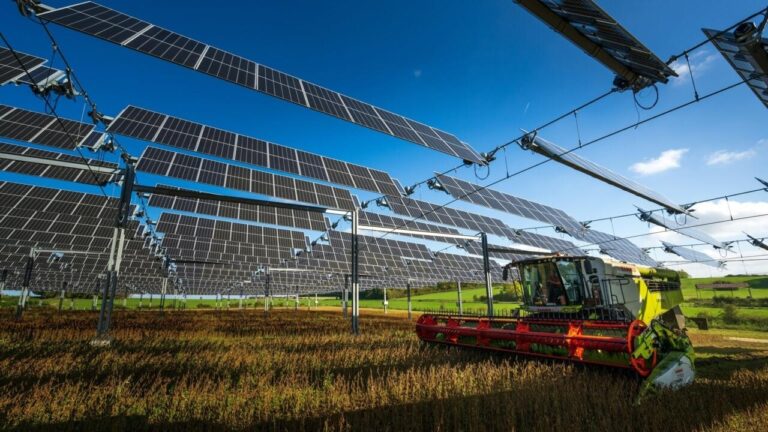Brussels (AFP) – EU countries and lawmakers on Tuesday struck a deal to expand Europe's production of clean technologies, from solar and wind power to carbon capture, as the EU faces a standoff with China and the United States.
Publication of:
2 minutes
Brussels wants to reduce dependence on China and make Europe more attractive for investment after the US released $369 billion in clean technology subsidies last year.
The European Union announced the plan last year over concerns that the U.S. program, which includes tax credits, would lure European manufacturers.
Belgium, which holds the rotating EU Presidency, announced that its negotiating team had reached a tentative agreement.
The European Commission, the EU's executive body, wants at least 40% of the green technologies used in the EU to be produced locally by 2030.
The law lists “strategic” technologies, including renewable energy such as nuclear power, solar power and wind power.
The 40% target is included in plans for the Net Zero Industry Act, which supports the EU's drive to become a carbon-neutral economy by 2050.
Under the law, public bids would be considered based on criteria that could favor European companies to counter similar moves by the Chinese and U.S. governments.
The draft law also aims to help companies obtain permits faster.
The law will come into force after formal approval by EU member states and parliaments.
“The most important thing is to bring investment back to Europe and create a level playing field,” said Anja Lange, head of Europe at US-based manufacturer Solar First.
shadow over europe
Access to clean technology and avoiding over-reliance on imported technology are key concerns in Europe, and many fear the bill alone will not be enough to change the equation.
China has a monopoly on the solar power industry, and European solar panel makers have repeatedly asked Brussels for help and accused Beijing of not acting fairly.
More than 90% of Europe's solar panel supply is processed in China, according to official data, and China is the EU's largest import partner for solar panels and wind turbines, the industry said.
Brussels learned a bitter lesson from the aftermath of Russia's invasion of Ukraine, which left allies scrambling to find alternative energy sources to Russia's.
The EU has taken a tougher stance on Beijing in recent years, aiming to “de-risk” the Chinese economy as part of efforts to boost domestic production.
“We cannot afford to become dependent on China. We already forgave Russia two years ago, and we cannot afford to make the same mistake again,” said Solar First's Lange.
Lange told AFP that the “oversupply” from China was not limited to wind and solar, adding that the heat pump, electrolyzer and battery industries were also under pressure.
The EU launched an investigation into China's electric vehicle subsidies last year, and there are hopes among some in the industry that it may launch a new investigation into Chinese-made solar panels.
But EU Financial Services Commissioner Mairead McGuinness dashed such hopes on Monday, saying the bloc needed to carefully consider the impact of its actions.
“When it comes to the energy transition, any potential measures must be considered against the goals we have set for ourselves,” he told MPs in Strasbourg.
© 2024 AFP


